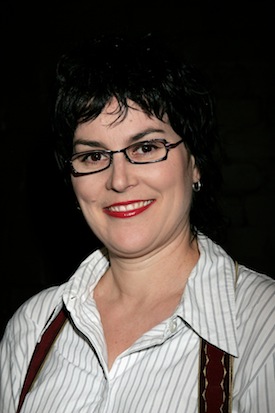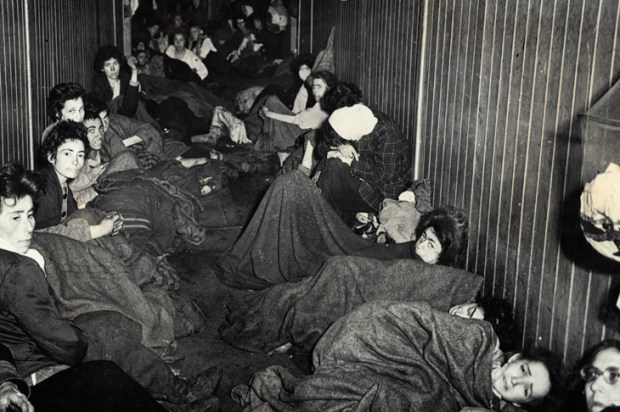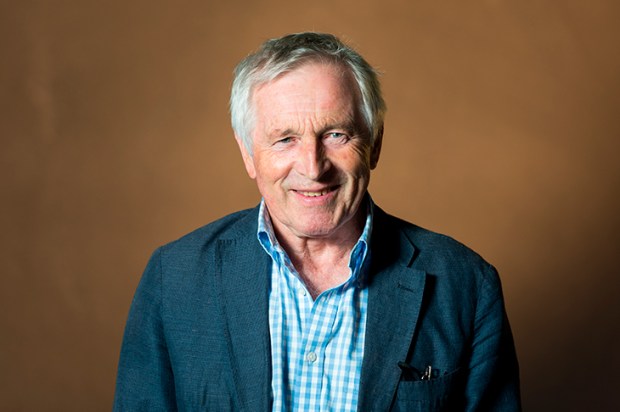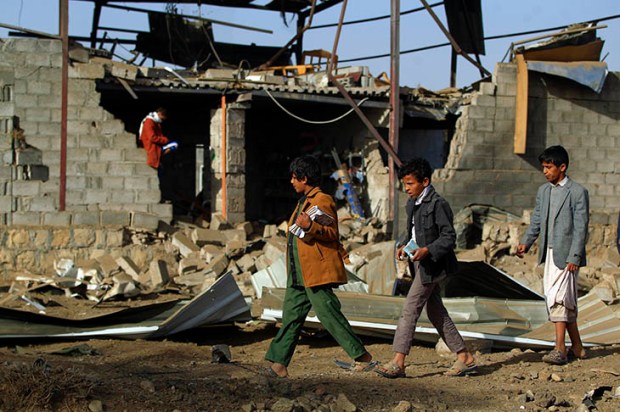‘Don’t take it for granted,’ she warned. ‘It’s one of the few places where you can hear diverse voices, different points of view; where you can understand that the world is infinitely complex.’ Alana Valentine, an Australian writer, was talking about the BBC World Service with such passion it was inspiring. You might think she would say this, wouldn’t she. After all, Valentine was giving her acceptance speech having just won first prize in the World Service’s International Radio Playwriting Competition for her radio drama The Ravens. Yet what she said was striking because you could tell she really meant it. These were not just platitudes. She had prepared what she wanted to say to be sure she would use her prize (for a play written in English as a first language) to make a point.
Valentine is unusual as a winner in that she has already had plays broadcast by the Australian Broadcasting Corporation (many of the prizes over the years have been given to writers who have never before entered a competition or written professionally) but she says she is ‘thrilled’ to be ‘part of the… rich artistic tradition of British radio making’. She admits, ‘that all sounds rather grand,’ but her sincerity was tangible. What, then, makes the World Service so special? Why must we be sure to protect it?
The competition (which is organised in conjunction with the British Council) is itself an awesome (and I mean that) feat of organisation. Almost 1,000 plays were submitted this year from 86 countries around the world. Every play is read by a team of volunteer writers, actors and directors before the shortlist is drawn up for the judges who this year included the actor Henry Goodman and the playwright Winsome Pinnock, as well as the doyenne of BBC Radio drama, Marion Nancarrow. She will be producing the plays for broadcast on the World Service, giving the winners a chance to have their thoughts and words heard not just here in the UK but by millions of listeners across the globe. The network is a trusted news outlet, but also a place where different experiences can be aired and discussed.
Virginia Jekanyika, whose drama Cactus Flowers won the prize for writing in a language that is not her native tongue, had never left Africa before coming to London to accept her prize and watch her play being brought to life on air. She began writing it as a way of getting over the death of her mother, but Cactus Flowers is about something very different — HIV/Aids, friendship and the struggle for women in her native Zimbabwe to make a living. It’s also very funny, as we heard at the prize-giving when a clip from the recording was played. Two women, who work at a hotel, are chatting about one of the guests. ‘This man is loaded like a rich man’s donkey,’ is just one of the lines that caught my ear.
This year, too, there was a new prize dedicated to the Bulgarian dissident writer Georgi Markov who was murdered in London in 1978 while working for the World Service. The winning drama by Ana Gonzalez Bello is set in a small village in Mexico, a long way from Sofia, but that’s what the World Service does best: drawing together different cultures and experiences just to see what can emerge from the cross-fertilisation.
On Monday a new and unusual series was launched on the station. The Conversation, presented by Kim Chakanetsa (and produced by Munazza Khan), will take two women from different parts of the world and encourage them to talk about the passion that connects them. On Monday we heard from Judge Khalida R. Khan from Peshawar, who at the moment is in The Hague as part of the International Criminal Tribunal investigating the war crimes of Rwanda, and Judge Mandisa Maya from the South African Supreme Court of Appeal.
The first man whom Khan sentenced to death while still in Pakistan told her, ‘I was hanged the day I first appeared before a female.’ That was enough to dishonour him. Maya, too, says, ‘I was making history. The only women who entered that courtroom before me were the cleaners.’ But their conversation was not really about the difficulties of taking on the male sex. They were far more interested in justice, and in their purpose, which they saw as bringing their insights and perspectives to the bench. There is ‘nothing remarkable’ about the Pistorius case, says Maya, except the huge media profile of the criminal. Judge Thokozile Masipa had tried many complex cases before that.
There was a generosity in the conversation, a genuine spirit of inquiry. ‘I would be interested to hear how Judge Khan copes with what she does,’ said Judge Maya after hearing from Khan about the case of the mother who gave evidence that her six children were butchered with a machete and that she was forced by the killer (who was sitting across from her in the dock) to turn round and watch. ‘I could not sleep at night,’ said Khan.
Got something to add? Join the discussion and comment below.
Get 10 issues for just $10
Subscribe to The Spectator Australia today for the next 10 magazine issues, plus full online access, for just $10.
You might disagree with half of it, but you’ll enjoy reading all of it. Try your first month for free, then just $2 a week for the remainder of your first year.














Comments
Don't miss out
Join the conversation with other Spectator Australia readers. Subscribe to leave a comment.
SUBSCRIBEAlready a subscriber? Log in